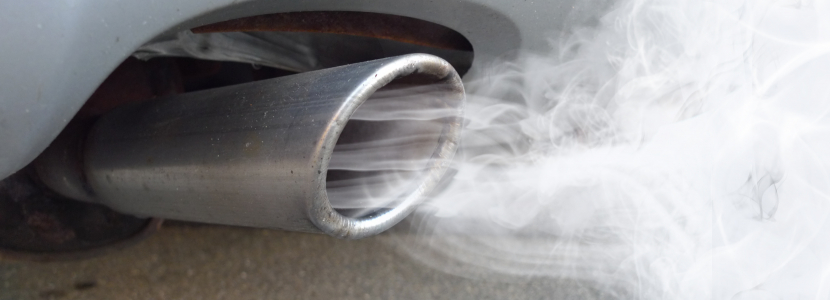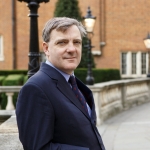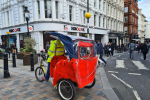
Tony Devenish represents West Central London at the GLA and Knightsbridge & Belgravia ward at Westminster City Council.
The following article first appeared on Conservative Home
It is not surprising that Sadiq Khan tends to talk about his environmental record as his proudest achievement. After all, what are his alternatives? Should we expect the Mayor to express pride in London’s soaring crime rates, his slashing of bus routes, or the fact that Crossrail is billions of pounds overbudget and – when it finally opens – will be the best part of three and a half years late? Or perhaps he should shout from the rooftops about the record numbers of strikes on his watch, or the pathetically small numbers of houses he has built, despite being given £5 billion of taxpayers’ money to do so. So, simply by process of elimination, it is not hard to see why the current Mayor is most comfortable waxing lyrical about his environmental policies.
That the Mayor finds it easiest to talk a good game on the environment does not mean that his record is a strong one. That’s why, in my recent report The Race to Net Zero: Delivering a Green Agenda in London Post COP26, I assessed the measures Sadiq Khan has taken as Mayor and what they have achieved in comparison to the record of three other UK Mayors: the Tees Valley’s Ben Houchen, the West Midlands’ Andy Street, and Andy Burnham in Greater Manchester. By comparing the achievements of four Mayor’s, each of whom has recently been re-elected for their second terms, I was able to assess the London Mayor’s record, rather than the amount of hot air he produces.
The centrepiece of Sadiq Khan’s environmental policies has been one he inherited from his predecessor, the Ultra-Low Emission Zone (ULEZ). However, in seeking to put his stamp on a reasonable and well-considered policy, the current Mayor has made it less fair, less targeted, and less reasonable.
When Boris Johnson announced the ULEZ on 26th March 2015, he planned to introduce it on 7th September 2020 with exactly the same boundaries as the Congestion Charge. Those, including Sadiq Khan, who argued that this was too long a timetable failed to understand two things: first, that when introducing a major change it is crucial to bring Londoners with you and give residents, businesses, and manufacturers time to adapt to the new status quo. Secondly, announcing such a significant change will lead to improvements in air quality almost immediately as people change their behaviour to adapt.
Over nearly six years as Mayor, Khan has given absolutely no indication that he understands either of those points. As soon as he became Mayor his top priority was not delivering for Londoners, but trying to make it look like he was delivering for Londoners. So changing the ULEZ – a far-sighted, innovative and well-considered Boris Johnson policy – was a key priority. He moved forward the ULEZ’s start date from September 2020 to April 2019. This was a silly and unnecessary mistake. It did little to help improve air quality, as Londoners who needed to drive in Central London were already in the process of making the necessary changes, but it undermined trust in Mayoral pronouncements. Given the mess the Mayor had made of TfL’s finances, it also very much looked as if the Mayor was seeking to squeeze more money out of hard-pressed Londoners.
Sadiq Khan announced that he would expand the ULEZ to the North and South Circulars from October 2021. Again this was designed to make it appear as if the Mayor was willing to take tough decisions to improve London’s air quality, but it created significant problems for no real benefit. The details of why could make a whole article in themselves, but, in short, whilst the initial ULEZ needed no new infrastructure and targeted areas with genuinely poor air quality, the expanded zone required hundreds more cameras at a cost of millions of pounds, and covered many areas where air quality was already good.
There were better, more targeted measures available but the Mayor would not listen. Instead he ploughed on with an expensive flawed scheme. He then tried to sweep the many resultant issues under the carpet. His scrappage schemes, to help fund replacement vehicles for those struggling to afford an upgrade after the pandemic, were insufficient. He ignored the London Assembly Conservatives’ suggestion to invest £50 million we identified from his Business Rate Reserve in the scheme, presumably because he could not bring himself to take advice.
Perhaps that also explains why he has refused our suggestion of following Andy Street’s lead and investing the income gained from the ULEZ expansion into both delivering a zero-emission bus fleet more quickly, making it a priority like that of the West Midlands and investing in more electric vehicle charging points. If he did so, London could overtake the West Midlands as the fastest region in the country for increasing electric vehicle charging capacity.
London’s Mayor is comfortable attacking the Government for his own failings and claiming that he would do more if only he had more powers. However, unlike his fellow Mayors, he has proved repeatedly unwilling to recognise the powers that he does hold. In The Race to Net Zero, I called for the Mayor to “review what the entire London Assembly group can do to lead on Green best practice, making sure he is leading by example from top to bottom, across the London Fire Brigade, Transport for London, and the Metropolitan Police Service.” The reality is that there is a huge amount Sadiq Khan could do, using the powers he holds to clean up the vehicles under his control.
If he were genuinely interested in working for the benefit of Londoners, Khan would be looking to learn from the approach of other metro Mayors. Both Labour and Conservative Mayors manage to work constructively with the Government and achieve far more as a consequence. I have called for Khan to “put an action plan in place to improve his relationship with the Government to deliver for London.” I am not suggesting that the Mayor should always give the Government an easy ride, or that he should not be prepared to stand up for London. However, continuously looking to pick fights and auditioning to be the next Leader of the Opposition is no way to deliver for London.







